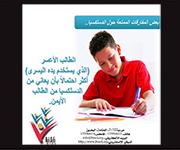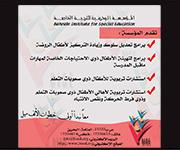| Whether or not your child’s symptoms of inattention and hyperactivity are due to ADD / ADHD, they can cause many problems if left untreated. Children who can’t focus and control themselves may struggle in school, get into frequent trouble, and find it hard to get along with others or make friends. These frustrations and difficulties can lead to low self-esteem – as well as friction and stress for the whole family. But treatment can make a dramatic difference in your child’s symptoms. With the right support, your child can get on track for success in all areas of life. Parenting tips
If your child is hyperactive, inattentive, or impulsive, it takes a lot of energy to get him or her to listen, finish a task, or sit still. The constant monitoring can be frustrating and exhausting. Sometimes you may feel like your child is running the show. But there are steps you can take to regain control of the situation, while simultaneously helping your child make the most of his or her abilities.
While ADD / ADHD is not caused by bad parenting, good parenting strategies can go a long way in correcting problem behaviors. Children with ADHD need structure, consistency, clear communication, and rewards and consequences for their behavior. They also need lots of love, support, and encouragement. There are many things parents can do to reduce the signs and symptoms of ADHD – without sacrificing the natural energy, playfulness, and sense of wonder unique in every child. Read Parenting a child with ADD / ADHD Treatment for ADD or ADHD
If your child struggles with ADHD-like, don’t wait to seek professional help. You can treat your child’s symptoms of hyperactivity, inattention, and impulsivity without having a diagnosis of ADD / ADHD. Options to start with include getting your child into therapy; implementing a better diet and exercise plan; and modifying the home environment to minimize distractions.
If you receive a diagnosis of ADD / ADHD, you can work with your child’s doctor, therapist, and school to make a personalized treatment plan that meets his or her specific needs. Effective treatment for childhood ADD / ADHD involves behavioral therapy, parent education and training, social support, and assistance at school. Medication is sometimes used, however, it should never be the sole ADD / ADHD treatment. Read ADD & ADHD Treatment and ADD / ADHD Medications To Learn More: Helpguide's ADD / ADHD Series ADD & ADHD in Children: Signs, Symptoms, and How to Get Help
Parenting a child with ADHD: Strategies for Family and Home Life
ADD & ADHD in the Classroom: Tips for Parents and Teachers
Diagnosing ADD & ADHD: Making the Diagnosis in Children and Adults
Adult ADD & ADHD: Recognizing the Signs, Symptoms, and Effects
Self Help for Adult ADD: Tips for Managing Symptoms and Getting Focused
ADD & ADHD Treatment: Professional Help for Children and Adults
ADD / ADHD Medications: Are Meds Right for You or Your Child?
Related links for ADD / ADHD in children General information about ADD / ADHD in children Attention Deficit Hyperactivity Disorder – Overview of ADHD, including its signs, symptoms, causes, and treatment options. (National Institute of Mental Health) ADHD: What Parents Should Know - Includes signs, symptoms and treatment of ADHD in children (Family Doctor) Signs and symptoms ADD / ADHD in children ADHD: What are the Signs? – Detailed look at the signs and symptoms of inattention, impulsivity, and hyperactivity in children with ADHD. (Family Education Network) Attention Deficit Hyperactivity Disorder – Describes the signs, symptoms and diagnosis of ADD / ADHD in Children. (University of Maryland Medical Center) A Look at Attention Deficit Hyperactivity Disorder (PDF) - Illustrated booklet detailing the signs and symptoms commonly associated with ADD / ADHD and action steps you can take. (National Institute of Mental Health) Signs and symptoms of ADD / ADHD in teens ADHD – A clear, simple, teen-oriented article that provides information about teens who have ADHD, with links to topics of interest to teenagers: driving, getting along with teachers, organizing homework. (KidsHealth.org)
|












